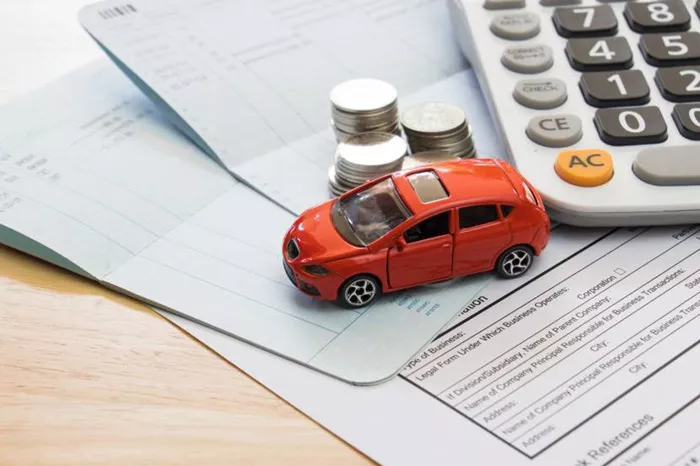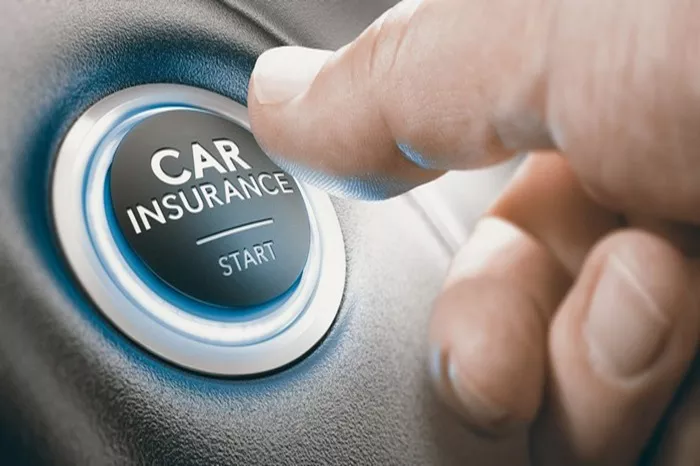In the world of business, protecting your assets is paramount, and for many companies, vehicles are essential tools of the trade. Whether you operate a fleet of delivery trucks, use personal vehicles for business purposes, or have company cars for employees, understanding commercial car insurance is crucial. This article delves into the intricacies of commercial car insurance, explaining how it works, its various components, the benefits it offers, and how to choose the right policy for your business needs. By the end of this comprehensive guide, you will have a solid understanding of commercial car insurance and its significance in safeguarding your business.
Understanding Commercial Car Insurance
What Is Commercial Car Insurance
Commercial car insurance is a type of insurance designed to cover vehicles used for business purposes. Unlike personal auto insurance, which protects vehicles used primarily for personal activities, commercial car insurance addresses the unique risks associated with business operations. This coverage is essential for businesses that rely on vehicles for transporting goods, delivering services, or conducting business activities.
Who Needs Commercial Car Insurance
Businesses of all sizes may require commercial car insurance, including:
Delivery Services: Companies that deliver goods or services, such as food delivery, e-commerce, or logistics providers.
Contractors and Tradespeople: Electricians, plumbers, and construction workers who use vehicles to transport tools and equipment.
Real Estate Agents: Professionals who use their vehicles to meet clients and show properties.
Rideshare and Taxi Services: Drivers who use their vehicles to provide transportation services.
Businesses with Fleets: Companies that own multiple vehicles for operational purposes, such as service providers or transportation companies.
If your business involves using vehicles in any capacity, commercial car insurance is likely necessary to protect your interests.
Key Components of Commercial Car Insurance
Commercial car insurance policies can vary significantly, but they typically include several key components designed to address different risks associated with business vehicle use.
Liability Coverage
Liability coverage is a fundamental component of any commercial car insurance policy. It protects your business financially if you are found responsible for causing bodily injury or property damage to others in an accident.
Types of Liability Coverage
Bodily Injury Liability: Covers medical expenses, lost wages, and pain and suffering for individuals injured in an accident for which you are at fault.
Property Damage Liability: Covers the cost of repairing or replacing property damaged in an accident you caused, such as another vehicle or a building.
Importance
Liability coverage is crucial for protecting your business assets. If you are involved in a serious accident, the costs associated with medical expenses and property damage can be substantial, potentially leading to financial ruin without adequate coverage.
Collision Coverage
Overview
Collision coverage pays for damages to your commercial vehicle resulting from a collision with another vehicle or object, regardless of fault.
Key Features
Deductibles: Collision coverage typically comes with a deductible. You must pay this amount out of pocket before your insurance covers the rest of the repair costs.
Vehicle Valuation: If your commercial vehicle is totaled in an accident, collision coverage will pay you the actual cash value of the vehicle, minus your deductible.
Benefits
Collision coverage is essential for businesses that rely on vehicles for operations. It ensures that you can repair or replace damaged vehicles, minimizing downtime and maintaining business continuity.
Comprehensive Coverage
Overview
Comprehensive coverage protects against damages to your commercial vehicle caused by non-collision events, such as theft, vandalism, natural disasters, or animal strikes.
Coverage Examples
Theft: If your vehicle is stolen, comprehensive coverage will help you recover its value.
Natural Disasters: Damage from events like floods, hailstorms, or fires is covered under this policy.
Vandalism: Acts of vandalism that result in damage to your vehicle are also covered.
Importance
Comprehensive coverage is vital for protecting your investment in commercial vehicles. Given the potential risks from non-collision events, this coverage helps safeguard your assets and provides peace of mind.
Uninsured/Underinsured Motorist Coverage
Uninsured/underinsured motorist (UM/UIM) coverage protects your business in the event of an accident with a driver who lacks sufficient insurance coverage or has no insurance at all.
Coverage Details
Uninsured Motorist Coverage: Covers your medical expenses and damages if you are involved in an accident with an uninsured driver.
Underinsured Motorist Coverage: Provides coverage when the at-fault driver has insurance, but their limits are insufficient to cover your damages.
Benefits
UM/UIM coverage is particularly important for businesses that operate in areas where uninsured or underinsured drivers are common. It ensures that your business is protected from financial losses due to accidents involving underinsured parties.
Medical Payments Coverage
Medical payments coverage (MedPay) pays for medical expenses incurred by you and your passengers in the event of an accident, regardless of fault.
Key Features
No Deductibles: MedPay typically does not have a deductible, meaning that your insurance will cover medical expenses from the first dollar.
Broad Coverage: This coverage applies to medical expenses for injuries sustained in your vehicle, regardless of whether you are at fault.
Importance
MedPay can help alleviate the financial burden of medical expenses resulting from accidents, ensuring that you and your passengers receive timely care without significant out-of-pocket costs.
Hired and Non-Owned Auto Coverage
Hired and non-owned auto coverage provides liability protection when employees use their personal vehicles for business purposes or when you rent vehicles for business use.
Key Features
Hired Auto Coverage: Covers liability for vehicles rented or leased for business purposes.
Non-Owned Auto Coverage: Covers liability when employees use their personal vehicles for business activities.
Benefits
This coverage is essential for businesses that require employees to use their vehicles for work-related tasks. It protects your business from potential liability arising from accidents involving non-owned vehicles.
Additional Coverage Options
In addition to the core components of commercial car insurance, there are several optional coverages that businesses may consider to enhance their protection.
Gap Insurance
Gap insurance covers the difference between what you owe on a vehicle and its current market value in the event of a total loss. This coverage is particularly important for businesses that have financed their vehicles.
Importance
If your commercial vehicle is totaled, gap insurance ensures that you are not left with a financial burden due to depreciation. It covers the difference, allowing you to pay off your loan or lease without incurring additional costs.
Rental Car Reimbursement
Rental car reimbursement coverage pays for the cost of renting a vehicle while your commercial vehicle is being repaired after a covered loss.
Benefits
Business Continuity: This coverage helps ensure that your business operations can continue without interruption while your vehicle is in the shop.
Cost Coverage: Rental car reimbursement can mitigate the costs associated with renting a vehicle during repairs.
Roadside Assistance
Overview
Roadside assistance coverage provides help in the event of a breakdown or other roadside emergencies. This coverage can include services such as towing, tire changes, fuel delivery, and lockout assistance.
Importance
Roadside assistance can save your business time and money in the event of a breakdown. Knowing that help is available can alleviate stress and ensure that your employees remain safe on the road.
Custom Parts and Equipment Coverage
If your commercial vehicles have custom parts or specialized equipment, this coverage protects those enhancements in the event of a loss.
Benefits
Protection for Modifications: Standard policies may not cover aftermarket modifications, so this coverage ensures that your investments are protected.
How Commercial Car Insurance Works
Understanding how commercial car insurance works is crucial for effectively managing your coverage and claims.
Here are the key aspects of how it operates:
Premiums
Commercial car insurance premiums are calculated based on several factors, including:
Business Type: The nature of your business and the associated risks will influence your premium.
Vehicle Type: The make, model, and age of your vehicles will affect the cost of coverage.
Driving Records: The driving history of your employees and any past claims will impact your premiums.
Coverage Levels: The amount of coverage you choose and any additional options will also affect your premium.
Claims Process
If an accident occurs, follow these steps to file a claim:
Ensure Safety: First, ensure the safety of everyone involved and seek medical attention if necessary.
Document the Incident: Gather information about the accident, including photos, witness statements, and police reports.
Notify Your Insurer: Contact your insurance company as soon as possible to report the incident and initiate the claims process.
Provide Necessary Information: Be prepared to provide details about the accident, including your policy number, the date and time of the incident, and any other relevant information.
Cooperate with the Claims Adjuster: Your insurer will assign a claims adjuster to investigate the incident. Cooperate fully and provide any requested documentation.
Claim Settlement
Once the claim is processed, the insurance company will determine the amount of compensation based on the policy terms, coverage limits, and the extent of the damages. Your insurer will communicate the settlement offer, and you can accept or negotiate if necessary.
Policy Renewal
Commercial car insurance policies typically have a renewal period, often annually. As your business evolves, it’s essential to review your policy at renewal to ensure it still meets your needs. Consider changes in your fleet, employee driving records, and any new business activities that may impact your coverage.
Choosing the Right Commercial Car Insurance Policy
Selecting the right commercial car insurance policy requires careful consideration of your business needs and risks.
Here are some steps to help you make an informed decision:
Assess Your Business Needs
Evaluate your business operations to determine the types of coverage necessary.
Consider factors such as:
Vehicle Usage: How often and for what purposes are vehicles used?
Number of Vehicles: How many vehicles do you operate, and what types are they?
Employee Driving Records: Assess the driving history of employees who will be using the vehicles.
Compare Insurance Providers
Research and compare multiple insurance providers to find the best coverage options and rates. Look for insurers with a strong reputation for customer service and claims handling.
Understand Policy Terms
Carefully review the terms and conditions of each policy you consider. Pay attention to coverage limits, deductibles, exclusions, and any additional features that may be important for your business.
Consult an Insurance Agent
Consider working with an insurance agent who specializes in commercial auto insurance. They can help you navigate the complexities of coverage options and find a policy that aligns with your business needs.
Review and Update Regularly
Once you have selected a policy, make it a habit to review your coverage regularly. As your business grows and changes, your insurance needs may also evolve. Stay proactive in ensuring that your coverage remains adequate.
Conclusion
Commercial car insurance is a vital component of risk management for businesses that rely on vehicles for operations. With its various components, including liability, collision, comprehensive, and additional coverages, commercial car insurance provides essential protection against the unique risks associated with business vehicle use.
By understanding how commercial car insurance works, assessing your business needs, and choosing the right policy, you can safeguard your business assets and ensure continuity in your operations. Regularly reviewing your coverage and staying informed about changes in your business and the insurance landscape will help you maintain adequate protection.
In a world where accidents can happen at any time, having the right commercial car insurance is not just a legal requirement; it’s a critical step in protecting your business and ensuring its long-term success.
Related Topics:




















